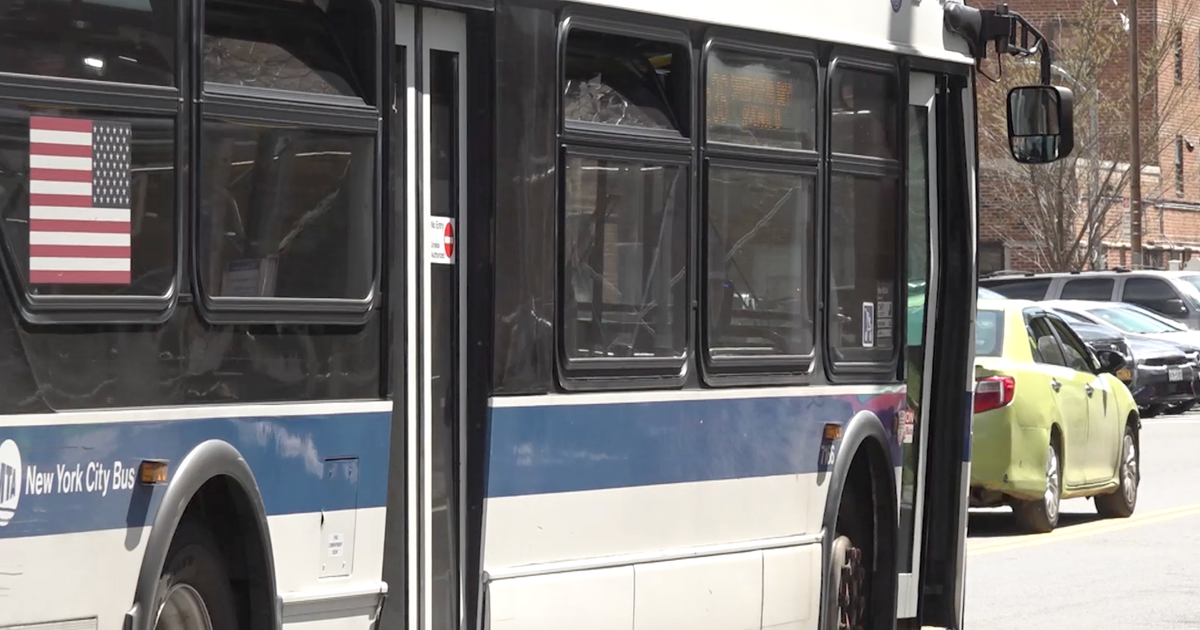Zohran Mamdani made free buses one of his signature policy proposals during the New York City mayor’s race, a campaign filled with ideas to make living in NYC more affordable.
Now that he has been elected as the city’s next mayor, the self-proclaimed democratic socialist’s work begins to turn the idea into action.
Zohran Mamdani’s plan for free NYC buses
Back in the summer of 2024, the MTA was in the midst of a funding crunch that was exacerbated by a troubling problem — fare evasion. At the time, CBS News New York learned that nearly 50% of bus riders weren’t paying, resulting in $315 million in lost revenue.

Democratic mayoral nominee Zohran Mamdani looks over notes in the green room before participating in a mayoral debate at Rockefeller Center on Oct. 16, 2025 in New York City.
Angelina Katsanis-Pool / Getty Images
Mamdani, a Queens assemblyman, said people weren’t paying because they couldn’t afford it. He suggested making buses free and having the city and state reimburse the MTA.
“That’s about $800 million a year, which may sound like a lot of money, and it is substantial, but in the context of a city budget that’s north of $100 billion and a state budget that’s north of $220 billion, this is just pennies,” Mamdani said at the time.
While Mamdani’s mayoral opponents were quick to criticize the idea, it resonated with a lot of New Yorkers struggling with affordability.
Are free buses in NYC feasible?
Political expert J.C. Polanco, a professor at the University of Mount Saint Vincent in the Bronx, recently told CBS News New York the biggest hurdle Mamdani would face in making free buses a reality is the MTA, because it controls the cost of bus fares.
“[Mamdani] would need the support of those members of the MTA, which means you need the support of the state and those officials that appoint those individuals to the MTA,” Polanco said.
He added that, because congestion pricing is the law of the land and the transit agency has a massive deficit, he believes the odds of New Yorkers getting to enjoy free buses are “slim to none.”
Speaking on Thursday, MTA chairman and CEO Janno Lieber didn’t seem amenable to the idea of making buses free for all riders.
“I want to make sure that people of limited income get priority in this discussion, that we’re not just giving a ton of money to people who are riding the 104 on the Upper West Side, where I grew up, the bus on Broadway,” Lieber said.
“Of course, the Metropolitan Transportation Authority has all sorts of financial issues that they have to sort out, as well,” POLITICO reporter Nick Reisman said the morning after the election. “Maybe, we’ll see a pilot program early on. A lot of it’s going to be dependent upon how much Mamdani is willing to compromise on something like that. And, most importantly, where he’s going to get the money to pay for it.”
How would the NYC free bus plan be paid for?
Mamdani told CBS New New York back in September that he would pay for free buses, along with his other democratic socialist policies, in part, by increasing the corporate tax rate to 11.5% — the same as New Jersey — and instituting a flat 2% tax rate for individuals earning $1 million or more.
“My vision for making the most expensive city in the United States of America affordable is actually one that benefits all of us,” he said.
MTA’s 2023-24 fare-free bus program
There is some precedent for free buses in New York City. The MTA suspended fares on most local buses in 2020, during the coronavirus pandemic.
Then in 2023, the MTA instituted a fare-free pilot program that ran for almost a year before ending on Aug. 31, 2024, amid the fare evasion epidemic. The program, which served around 43,000 riders, offered free trips on the Bronx Bx18A/B, Brooklyn B60, Manhattan M116, Queens Q4, and Staten Island S46/96 bus routes.
The MTA originally said the fare-free initiative would last six months, but fares were not collected for 342 days. At the time, Lieber said of providing free service on all bus routes, “There’s no room for losing a couple billion dollars in bus revenue.”
More from CBS News
